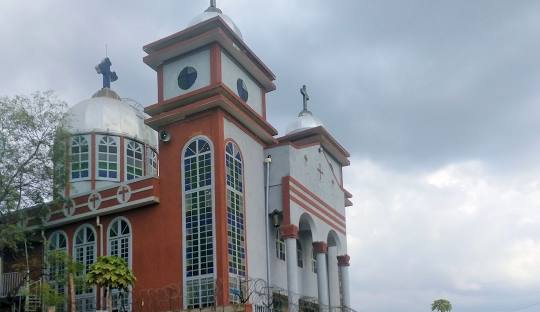Juba, South Sudan
🏞️ Juba, South Sudan
“Africa’s Youngest Capital: Raw, Riverine, and Rising”
🗺️ Overview
Juba is the capital and largest city of South Sudan, the world's youngest country, established in 2011. Poised along the White Nile, Juba is a raw, underdeveloped yet charismatic city that reflects the nation's early steps toward identity and peace. It's a city for hardcore adventurers, aid workers, and those deeply curious about the roots of modern Africa.
Fly All Over Rating: 5.8/10
✔️ Vibrant local culture and Nile location
✔️ Untouched by mass tourism
❌ Fragile security and limited infrastructure
❌ Visa and logistics are complicated
✈️ Getting There & Around
-
Airport: Juba International Airport (JUB)
-
Visa: Required for all; pre-arranged through embassies or official agencies
-
Transport:
-
Taxis and boda-bodas (motorcycle taxis)
-
Walking is possible in central areas, but not advised at night
-
Roads are rough; 4x4s preferred
-
🏞️ Top Attractions
🌊 1. White Nile Riverside
The Nile here is calmer and majestic, with locals fishing and washing clothes — a perfect scene of daily life in South Sudan.
🛍️ 2. Konyo Konyo Market
Bustling and colorful — the heart of Juba’s street life, selling everything from fresh produce to electronics.
✝️ 3. All Saints Cathedral
A peaceful Anglican church offering insight into the spiritual life of Juba residents.
🇸🇸 4. John Garang Mausoleum
A monument to the founding father of South Sudan — politically significant and a symbol of national pride.
🍃 5. Jebel Kujur (Jebel Hill)
A short hike for panoramic views over Juba and the Nile — dusty, rocky, and serene.
🍽️ What to Eat
Local Dishes
-
Asida – Dough-like sorghum dish served with stew
-
Kisra – Fermented flatbread, staple in both Sudan and South Sudan
-
Nyama choma – Grilled meat, often goat or beef
-
Foul – Spiced fava beans, eaten for breakfast
Dining Picks
-
Da Vinci Lodge Restaurant – Nile views and international menu
-
Crown Hotel Restaurant – Clean, safe, with good variety
-
Logali House – A haven for expats, calm and secure
🏨 Where to Stay
💰 Budget
-
Juba Landmark Hotel – Simple but reliable for basic needs
-
South Sudan Hotel – Affordable with local character
🏨 Mid to High-End
-
Crown Hotel – Secure and popular with diplomats/NGOs
-
Royal Palace Hotel – Decent rooms, some modern facilities
🛍️ Souvenirs & Culture
-
Beaded jewelry and tribal crafts
-
Wooden masks and figurines
-
Woven baskets and local textiles
-
South Sudanese flag items (scarves, shirts, etc.)
📅 Best Time to Visit
-
December to February – Dry season, most manageable weather
-
Avoid May to October – Rainy season with flooding, poor road conditions
🛡️ Travel Tips & Safety
-
Security: Conditions can be unpredictable; always check with embassies and news sources
-
Photography: Be very careful — military areas are off-limits
-
Local culture: Conservative; modest dress recommended
-
Cash economy: USD accepted in many places
-
Curfews: In place sporadically — follow local guidance
📊 Juba Ratings (Out of 10)
| Category | Score | Notes |
|---|---|---|
| Natural Beauty & Scenery | 6.0 | White Nile and surrounding hills |
| Culture & History | 6.5 | Vibrant traditions and national symbolism |
| Food & Cuisine | 5.2 | Simple, hearty local dishes |
| Affordability | 6.8 | Fairly low costs, especially local markets |
| Safety & Political Stability | 4.0 | Requires caution; research essential |
| Infrastructure | 4.8 | Basic services; limited transport and amenities |
| Hospitality | 7.2 | Warm, welcoming locals despite challenges |
| Overall Travel Value | 5.8 | Best for adventurers, NGO workers, and pioneers |
🧭 Final Word
Juba is a capital city in progress — gritty, heartfelt, and standing at the dawn of nationhood. It's not your average destination, but for those drawn to the undiscovered and deeply human, Juba offers a front-row seat to a nation's birth. Come for the Nile, resilience, and raw cultural experience — just come prepared.


